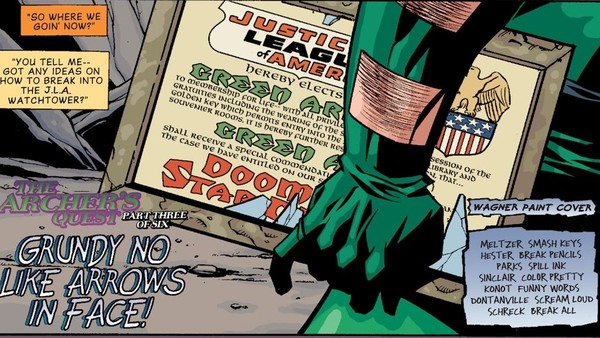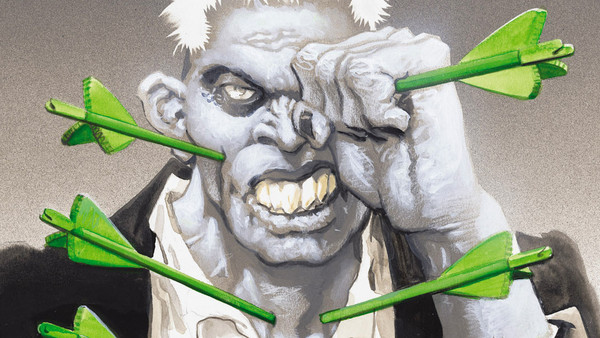The DC Comic That Saved Green Arrow
2. Reappraising A Legacy - Is GA DC's Most Important Hero?

Much like Quiver, Archer's Quest finds a great deal of success in examining Green Arrow's literary history. In this case, the journey is spurred on from Queen revealing to Roy that he'd ordered the Shade - an immortal adversary of the Justice League - to round up all his old memorabilia and to have it destroyed so that it couldn't be used to target his friends and family. Through this, it is revealed that Shade had missed several key items from Queen's past, so it falls to him and Roy to go on a journey of self-reflection through memory-lane, find them, and ensure they can never be used again.
When Denny O'Neil and Neal Adams sent Hal Jordan and Oliver on a hard-travelling journey through Nixon's America, they did so in order to hold a mirror to America as it then existed. Just as that road-trip proved to be a transformative experience for DC's foremost green characters, the hard-travelling journey in the Archer's Quest is no different, except instead of confronting a contemporary zeitgeist, it takes an introspective approach to DC's history, as well as Queen's contributions along with it.

In Quiver, Kevin Smith made an important delineation between the Green Arrow of the 1970s and that of the one seen in Mike Grell's Longbow Hunters, and ultimately left the character with both interpretations informing their personality. It is this Arrow that leads Archer's Quest, as he heads across the country and accumulates a museum's worth of his history, from a ceremonial Power Ring gifted to him by Hal, to his official document decreeing his membership of the JLA.
There's an undercurrent of tragedy to the exercise, particularly when the final twist comes around, but it all serves a purpose in proving that Oliver is the most human hero of them all. Further to that, the Archer's Quest illustrates the importance of Green Arrow not just to the DC Universe, where he's been the conscious of the Justice League, an advocate for social justice and a competent crimefighter, but also to the superhero genre as a whole.
Save for the nineties, Oliver Queen has constantly been moving forward, and the added wrinkle in this book is that he's a baby-boomer learning and adapting to a whole new milieu. There's a generational element at play, and it only works to the book's benefit.